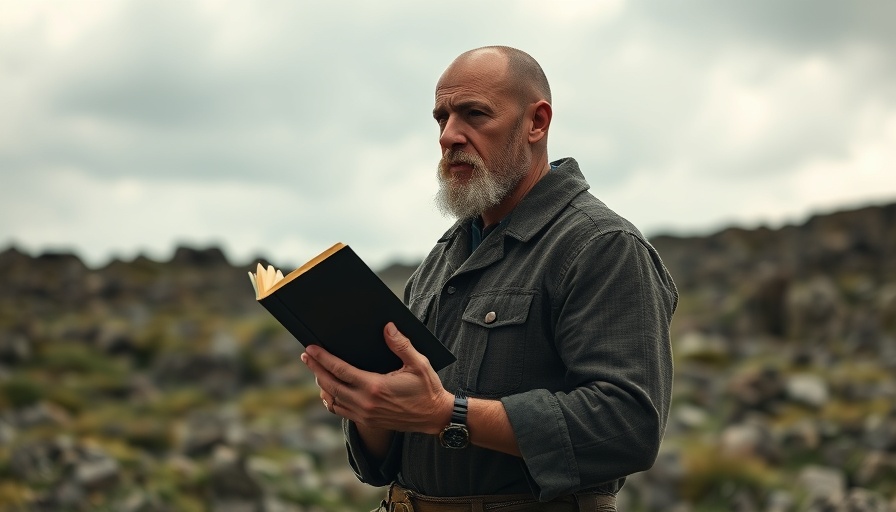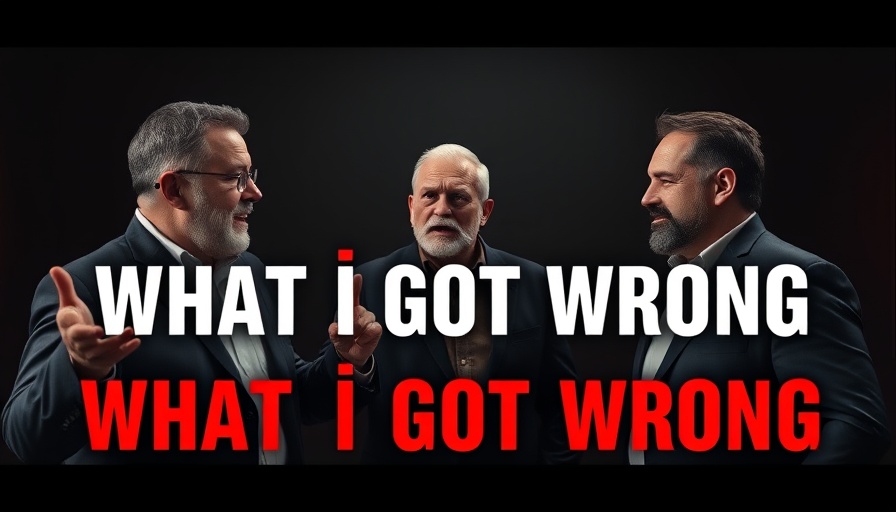
Understanding the Right to Life through a Human Rights Lens
The assertion that the right to life is a fundamental human right is rooted in the concept that all humans, regardless of their developmental stage, are entitled to dignity and protections. This premise forms a strong foundation for the argument in favor of the unborn's right to life. As the discussion around life and rights emerges, it's essential to analyze how these concepts have evolved and what they mean today, especially for the seekers of truth.
In 'A Simple Case for Life in 15 seconds,' the discussion dives into the right to life, exploring key insights that sparked deeper analysis on our end.
Historical Context: The Evolution of Human Rights
The concept of human rights has a rich history, emerging in various philosophical and legal frameworks across different cultures. Understanding this historical narrative helps illuminate the current debates surrounding the unborn's rights. The Universal Declaration of Human Rights in 1948 marked a significant moment in affirming that all humans are entitled to rights simply by being human.
This declaration forms a crucial part of international discourse, advocating for the inherent value of all human life, prompting discussions on topics ranging from abortion to end-of-life ethics. Engaging with these human rights frameworks encourages individuals to grapple with the profound implications of who is included within the definition of 'human'.
The Importance of Defining Humanity in the Abortion Debate
One of the core arguments presented in favor of the unborn’s right to life stems from the definition of what it means to be human. Advocates assert that personhood begins at conception, and thus, the unborn possesses rights equivalent to those of already born individuals. This argument isn't merely theoretical; it has deep real-world implications for laws and ethical norms governing our society.
Understanding this can reshape the conversations taking place among young people and college students, who might be exploring their beliefs regarding morality, ethics, and life. By framing the debate within the context of human rights, it shifts the conversation from abstract moral questions into a discussion rooted in dignity and respect for human life.
Social Connections: Building a Community around Life
The discussion surrounding life and rights isn't only an ideological battle; it's a community issue that resonates deeply with parents, educators, and church leaders. When families and communities engage in these discussions, they create a robust support system for understanding and advocating for life. Examples of local churches fostering conversations about life issues can inspire youth and ministry workers.
By organizing community workshops, discussions, or forums, churches can help break down the barriers of misunderstanding that often lead to division. This approach encourages empathy and insight, allowing believers to support one another in navigating their faith and beliefs surrounding complex issues like parental rights, reproductive justice, and child advocacy.
Diverse Perspectives: Engaging in Constructive Dialogue
In today's society, the dialogue surrounding the right to life is often polarized. Engaging with diverse perspectives enriches the conversation and helps address misconceptions. For instance, many non-Christians from other faiths may have different views on when personhood begins. Understanding these beliefs and encouraging open dialogue can lead to deeper mutual respect and understanding.
Perhaps workshops leveraging input from different faith traditions could facilitate understanding without compromising individual beliefs. This environment of respect and inquiry is vital for young people exploring their identities and convictions in a complex world.
Practical Insights: How to Navigate Conversations about Life and Rights
For parents and educators, equipping the next generation to discuss life matters is crucial. Here are steps to effectively navigate these conversations:
- Encourage Critical Thinking: Encourage youth and college students to research and question the information they encounter surrounding life issues. This empowers them with knowledge.
- Foster Open Communication: Create safe spaces at home and in educational settings for students to discuss their views without fear of judgment.
- Model Respect: Demonstrate how to engage with differing opinions respectfully and compassionately, laying the groundwork for healthy dialogue.
Concluding Thoughts: The Personal Impact of Understanding Life
Understanding the implications of the right to life extends beyond mere ideological debate—it touches our hearts, our relationships, and our communities. Each dialogue nurtures compassion and empathy among believers and seekers alike, fostering an inclusive environment. As church leaders and community members, it’s vital to equip ourselves with both the theological grounding and practical tools to engage with these complex discussions meaningfully.
In an era where divisiveness is prevalent, let us be advocates of life, compassion, and understanding. Engaging deeply with these topics not only strengthens our faith but also nurtures a community of love and respect for all human life.
 Add Row
Add Row  Add
Add 








 Add Row
Add Row  Add
Add 

Write A Comment